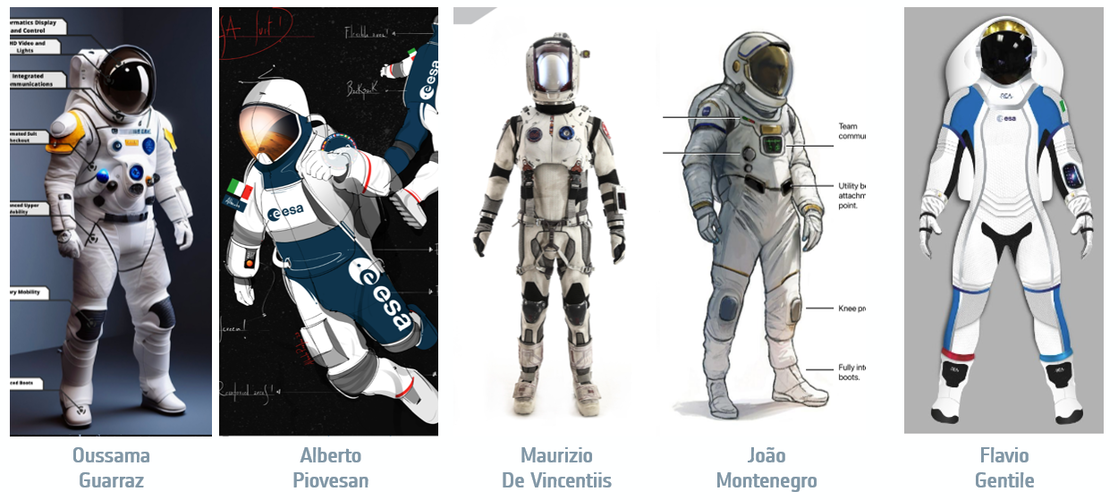
Copernical Team
Hawai'i observatories add color, depth to European Euclid mission

Launched on July 1, 2023, the European Euclid mission will observe billions of galaxies over one-third of the sky to create a map of the Universe. But Euclid's map will be in black and white; telescopes in Hawai'i, including the Subaru Telescope, are needed to determine the colors of the galaxies. The color data will be used to deduce the distance, thus creating a 3D map, uncovering the mysteries of dark matter and dark energy.
The European Space Agency (ESA) Euclid space telescope mission will explore the mysteries of dark matter, dark energy, and cosmic evolution.
Alone in a dark cave: What can we learn from extreme survival experiments?

Why do humans undertake journeys of personal exploration, or subject themselves to challenging conditions for long periods of time? What might we learn from their experiences?
British mountaineer George Mallory undertook his fatal attempt to summit Mount Everest in 1924 simply "because it's there". While such quests may have deeply personal motivations, research carried out during expeditions in extreme conditions can contribute to our understanding of how humans respond to environmental challenges.
The research outcomes can potentially be applied to a variety of settings, including remote locations here on Earth and even human space exploration.
Searching for extreme environments
Many explorers seek out "extreme environments." This term describes harsh and unusual environmental conditions where it is difficult for life forms like humans to survive and thrive.
Examples include places that experience extremes of temperature, pressure, altitude, rainfall, breathable air, natural light, or hazardous chemical concentrations.
In recent years, humans have undertaken many extreme experiments, either alone or in groups.
In June 2023, Joseph Dituri, a biomedical engineer at the University of South Florida, completed a record-breaking 100 days living 9.15 meters underwater in a special habitat.
NASA locks four crew members into a one-year mission in a simulated Mars habitat
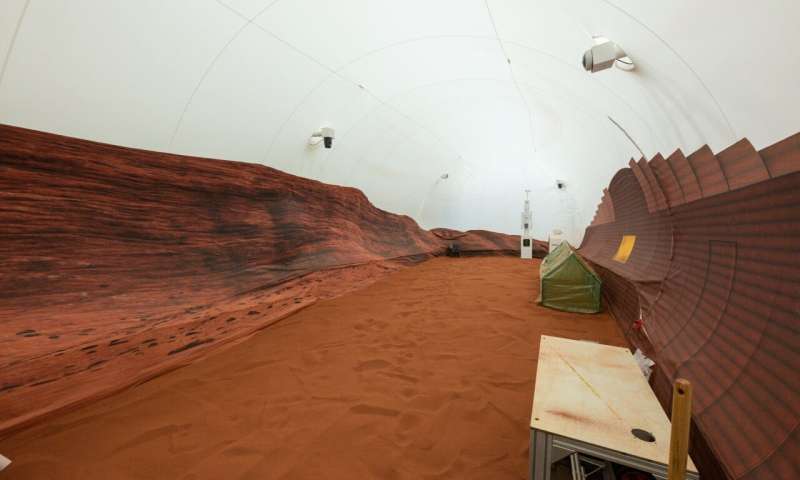
On June 25, 2023, a crew of four volunteers entered a simulated Martian habitat, from which they will not emerge for over a year. Their mission: to learn more about the logistics—and the human psychology—of living long-term on another planet, without ever leaving the ground.
The mission is called CHAPEA (Crew Health and Performance Exploration Analog) and is the first of three planned simulations between now and 2026, each of which will teach scientists progressively more about what it takes for long-duration human spaceflight to succeed.
CHAPEA is based at NASA's Johnson Space Center in Houston, Texas. The habitat, called Mars Dune Alpha, is a 1,700 square-foot 3D-printed living space, in which the crew will live, work, exercise, sleep, and perform experiments.
Through the magic of virtual reality, the mission will also involve extra vehicular activities (EVAs), in which crew members will briefly leave their habitat to enter an adjacent enclosure complete with red sand.
NASA's Parker Solar Probe completes 16th close approach to the sun
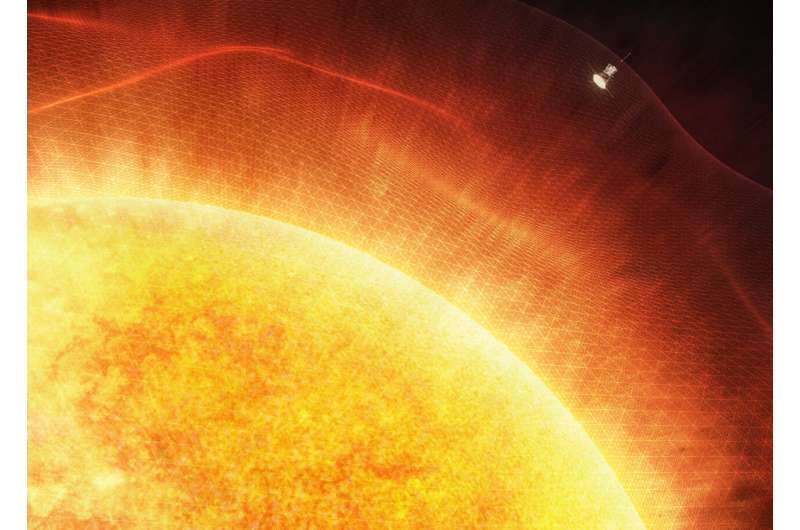
NASA's Parker Solar Probe accomplished a milestone on June 27, 2023—its 16th orbit of the sun. This included a close approach to the sun (known as perihelion) on June 22, 2023, where the spacecraft came within 5.3 million miles of the solar surface while moving at 364,610 miles per hour. The spacecraft emerged from the solar flyby healthy and operating normally.
On Aug. 21, 2023, Parker Solar Probe will swing past Venus for its sixth flyby of the planet. To prepare for a smooth course, the mission team at the Johns Hopkins Applied Physics Laboratory (APL) applied a small trajectory correction maneuver on June 7, 2023, the first course correction since March 2022.
This flyby will be the sixth of seven planned flybys of Venus during Parker's primary mission. Parker uses Venus's gravity to tighten its orbit around the sun and set up a future perihelion at just 4.5 million miles from the sun's surface.
Euclid launch broadcast replay
 Video:
01:45:00
Video:
01:45:00
Watch a replay of the launch broadcast for ESA’s Euclid.
ESA’s Euclid mission was launched into space on a SpaceX Falcon 9 from Cape Canaveral in Florida, USA, on 1 July 2023. It is now on its way to Sun-Earth Lagrange point L2.
By observing billions of galaxies out to 10 billion light-years, the space telescope will create the most detailed 3D-map of the Universe, with time as the third dimension.
The launch broadcast programme includes live segments from the launch site and ESA’s European Spacecraft Operations Centre (ESOC) in Darmstadt, Germany.
Watch the replay of the liftoff.
Access the related
European satellite strikes lightning
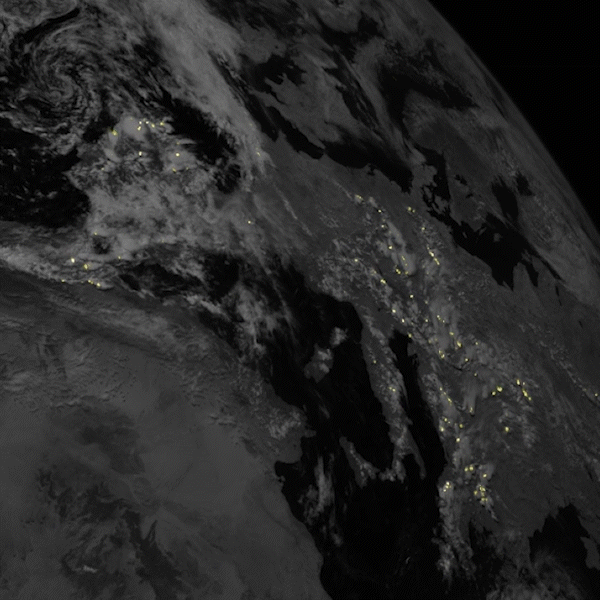
The first ever satellite instrument capable of continuously detecting lightning across Europe and Africa has now been switched on. New animations from the innovative ‘Lighting Imager’ confirm the instrument will revolutionise the detection and prediction of severe storms.
First data from Europe’s Lightning Imager
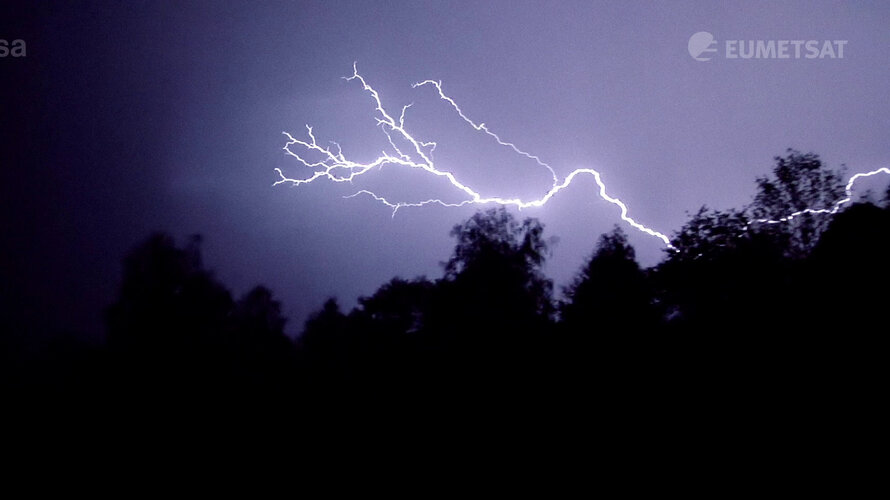 Video:
00:04:49
Video:
00:04:49
Discover the first results from Europe’s first Lightning Imager onboard the Meteosat Third Generation. The Lightning Imager can continuously detect rapid flashes of lighting in Earth’s atmosphere whether day or night from a distance of 36 000 km.
This is the first time a geostationary weather satellite has the capability to detect lightning across Europe, Africa and the surrounding waters. Each camera can capture up to 1000 images per second and will continuously observe lightning activity from space. The data will give weather forecasters greater confidence in their predictions of severe storms.
Watch live: First data from Europe’s first lightning detector
Watch live: First data from Europe’s first Lightning Imager
Tune in at 14:00 CEST for the first results from MTG’s lightning detector
Commanding role for Andreas in space
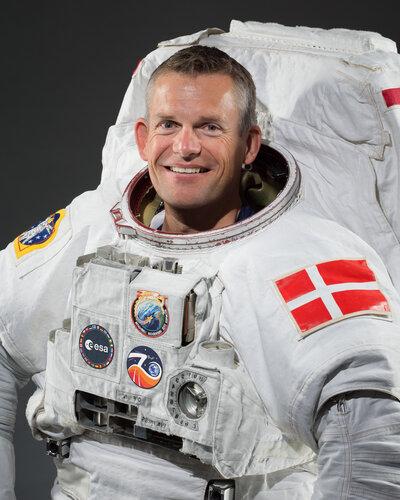
ESA astronaut Andreas Mogensen will be commander of the International Space Station (ISS) during his Huginn mission, becoming the sixth European astronaut to fulfil this role.


